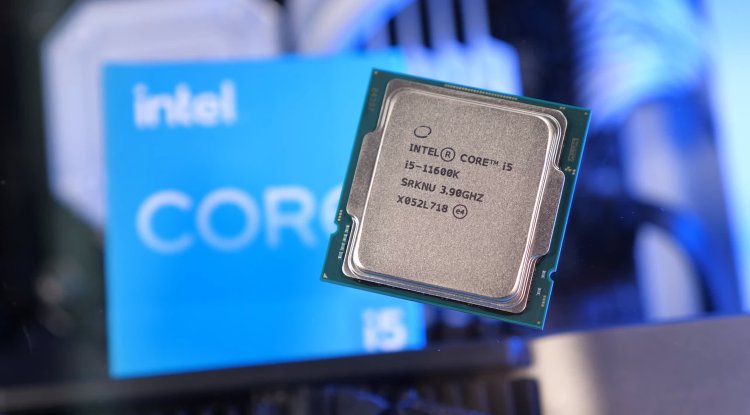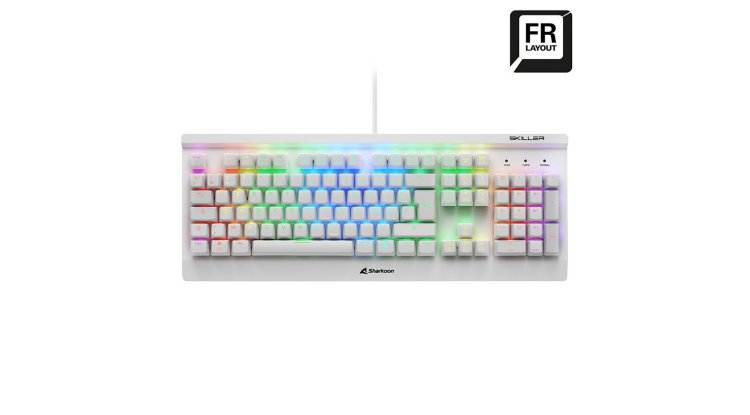Intel Core i5 11600K: mainstream gamer
Intel's Rocket Lake processors for the first time in many years bring improved IPC to Intel desktop processors, as well as support for PCIe 4.0.

Intel's Rocket Lake processors for the first time in many years bring improved IPC to Intel desktop processors, as well as support for PCIe 4.0. The tested Core i5 11600K provides excellent gaming performance, however, it lags significantly behind AMD's competition in terms of energy efficiency.
However, Rocket Lake processors are still quite significant for Intel, primarily because of two things. Namely, Rocket light processors bring support for PCIe 4.0, and they also have new, redesigned Cypress Cove cores that bring significantly improved IPC (Instructions per Clock) compared to its predecessors, more precisely Intel Core processors of the 10th generation. PCIe 4.0 and improved IPC
Although Intel with Rocket Lake processors has covered the entire market from cheaper to more expensive models, the mainstream and cheaper models of Rocket Lake processors have been shown to offer far better value for money than the rather overpriced high-end Core i9 processors.
The processor we tested, the Core i5 11600K, is certainly one of the most interesting and cost-effective Rocket Lake processors, along with the Core i5 11400F. It is a modern processor with a total of 6 cores with support for HyperThreading. Rocket Lake processors use the same LGA 1200 socket as their Comet Lake predecessors.
However, as far as chipsets are concerned, these processors are not officially supported on H410 and B460 chipset boards, while all other 400 and 500 series chipsets support Rocket Lake processors. We tested the Core i5 11600K on a Z590 motherboard.
It is definitely worth mentioning that the 11600K comes with an integrated UHD Graphics 750 graphics processor. On the other hand, the 11600K comes without a heatsink so you will have to take care of adequate cooling yourself.
In terms of support for working memory, Rocket Lake now officially supports 3200 MHz DDR4 memory. However, these processors can do much more in terms of clock speed, so our test model worked without problems with 4000 MHz memory, but with the mandatory Gear 2 setting, which de facto sets the clock speed of the memory controller to a 1: 2 ratio to clock memory speed. Wasteful 6 cores!
In terms of single-core performance, Intel has made a significant step forward with Rocket Lake processors, so the 11600K is close to AMD's Zen 3 processors. In terms of multi-core performance, we believe that AMD's latest generation processors are still superior in this regard.
However, we can't help but get the impression that Rocket Lake processors are primarily limited by the production process and the maximum available energy consumption. The Intel TDP 11600K specifies at 125 W, but that actually tells us little about the actual consumption.
In practice, when loading all cores, the 11600K runs at 4.6 GHz and consumes 140-150 W at rated settings. Inside the motherboard BIOS, it is possible to release the processor from nominal restrictions, ie increase the consumption at the maximum boost clock.
Altogether, it also affects the rather modest overclocking potential. We have successfully overclocked the test 11600k to 4.8 GHz on all cores with an operating voltage close to 1.4 V. For something more than that, you will have to further increase the operating voltage, which causes an enormous increase in energy and requires correspondingly expensive cooling.
The processor worked without problems in games at 4.9 GHz, but it was not stable when loading all cores. In any case, if you plan to overclock the 11600K, we recommend better water cooling.
Ultimately, Intel's 11600K is a very capable and fast mainstream processor that offers support for PCIe 4.0 and excellent single-core and gaming performance. Multi-core performance isn’t that impressive, and a pretty big minus is the high power consumption and surprisingly low overclocking potential.
Nonetheless, there is no doubt that the 11600K offers a very good price-performance ratio, at least if we look at what is currently being offered in the processor market. More information
| Model: | Core i5 11600K |
| Overall rating: | 3.6 |
| Performance: | 4 |
| Cost-effectiveness: | 4 |
| Impression: | 3 |
| Manufacturer: | Intel |
| Production process: | 14nm +++ |
| Socket: | LGA1200 |
| A number of cores/clock speed: | 6 (12) / 3.9 (4.9) GHz |
| Cache L1 / L2 / L3: | 3+ 12 MB |
| Integrated GPU: | Intel UHD Graphics 750 (iGPU), 32EU / 256SP, 0.35-1.30GHz |
| Heat dissipation (TDP): | 125 W |
| Plus: | gaming performance, excellent single-core performance, support for PCIe 4.0, integrated graphics processor with support for DX12, memory controller allows the use of fast DDR4 memory with a working frequency of 4000 MHz or higher |
| Minus: | comes without cooler, quite high power consumption when loading all cores, relatively weak overclocking potential |





































